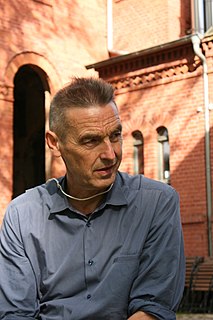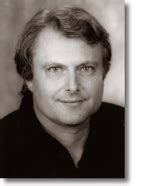A Quote by Nicholas A. Christakis
One reason citizens, politicians and university donors sometimes lack confidence in the social sciences is that social scientists too often miss the chance to declare victory and move on to new frontiers.
Related Quotes
A … difference between most system-building in the social sciences and systems of thought and classification of the natural sciences is to be seen in their evolution. In the natural sciences both theories and descriptive systems grow by adaptation to the increasing knowledge and experience of the scientists. In the social sciences, systems often issue fully formed from the mind of one man. Then they may be much discussed if they attract attention, but progressive adaptive modification as a result of the concerted efforts of great numbers of men is rare.
I think it is now time for social scientists to step out of the shadow and to establish an advanced social sciences methodology that integrates science (third-person view) social transformation (second-person view) and the evolution of self (first-person view) into a coherent framework of consciousness-based action research
When a social movement adopts the compromises of legislators, it has forgotten its role, which is to push and challenge the politicians, not fall in meekly behind them. We who protest...are not politicians. We are citizens. Whatever politicians may do, let them first feel the full force of citizens who speak for what is right, not for what is winnable, in a shamefully timorous Congress.
Lack of self-confidence is, more often than not, simple laziness. We feel confused and uncertain because we do not know. But instead of making the effort to investigate, we procrastinate and worry. We tell ourselves we can't instead of learning how we can. If we used the mental energy we expend in worry and fear to get out and find out about what we do not know, we would see our self-confidence grow. Lack of self-confidence is not overcome by faith, but by action. It is a lack, not of certainty, but of effort. Too often we are certain that we can't before we give ourselves a fair chance.
The social sciences offer equal promise for improving human welfare; our lives can be greatly improved through a deeper understanding of individual and collective behavior. But to realize this promise, the social sciences, like the natural sciences, need to match their institutional structures to today's intellectual challenges.
I think of myself as a social scientist. In order to get hired and to get promoted, we're forced to declare a disciplinary and sub-disciplinary specialty, so I am a psychologist and I am a social psychologist within that. But I think the exciting thing is to think about the social sciences in general and the nature of society. It's one of the hardest things to think about, because our brains aren't designed to think about these emergent entities. We're not good at it.
My Third-World roots remind me that the vast majority of our fellow human beings live hungry, sick, and uneducated, and that most social scientists, even in that world, ignore that ugly reality. This is why my papers in mathematical sociology deal not with free choice among 30 flavors of ice-cream, but with social structure, social cohesion, and social marginality.
I would like to invite the citizens of Great Britain and the citizens of the U.S. and the citizens of the world to come here and walk freely through the streets of Venezuela, to talk to anyone they want, to watch television, to read the papers. We are building a true democracy, with human rights for everyone, social rights, education, health care, pensions, social security, and jobs.
The thing that distinguishes social systems from physical or even biological systems is their incomparable (and embarrassing) richness in special cases. Generalizations in the social sciences are mere pathways which lead through a riotous forest of individual trees, each a species unto itself. The social scientist who loses this sense of the essential individuality and uniqueness of each case is all too likely to make a solemn scientific ass of himself, especially if he thinks that his faceless generalizations are the equivalents of the rich vareity of the world.




































